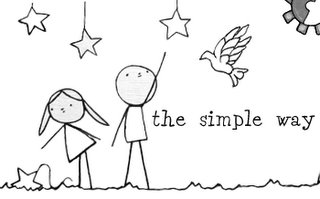Imagining our Image

For some time i have wrestled through issues of truth currently on the docket of modern psychology. We as a culture, i am convinced, are at the peak of self-glutton fest where we have reduced human beings to a wal-mart of sorts where everything necessary to accomplish, achieve, fix, imagine is contained inside just in deep recessed aisles not easily accessed all the time.
Neitzsche in his attempt to create uber-self-reliant individuals used to speak of this type of tyranny ironically enough in his work entitled "Beyond Good and Evil". He speaks of a type of livable morality that has moved beyond archaic rules and rigid legalistic slavery, which keeps us from becoming all that we are intended to be. I am afraid that ole Fredrich has gotten exactly what he wished for.
As long as we can throw off these chains that fundamentally tell us who we are and what we were made for we are then capable of making up our own identity as we go. But then again that assumes even then that i should trust myself to tell me the truth about myself. This is what bothers me so much about the Scriptures. The Unholy Trinity as C.S Lewis called it (Flesh, World, and Self) competes to tell me the "truth" about myself and certainly i believe it oft because i am very gullible. Could this be the very thing that Paul wrestles with in Romans 7-8? When i gave my life to Christ i have a new identity. It is fundamentally different and anything good that then went into me at that moment came only from Christ. Now still i like to sin and confuse my identity with what i use to be but as Paul echoes that is not me, but just the sin that still lingers in me. But before me get all high and mighty lets not then go ahead and take credit for the good deeds that flow from us following. If anything good now comes it is completely Christ and not me.
What does this really mean and look like? I am not convinced but i am tired of listening to the wrong voices. I am tired of tricking myself into thinking i am more holy/ or even sinful than i really am. Who are you fundamentally? How do you know the truth about yourself? Can we trust the progress of Nietzsche to really lead us to a race of men and women who can trust their desires only because at that point they are trustworthy?
Maybe we have ears to hear and eyes to see but are doing neither.




